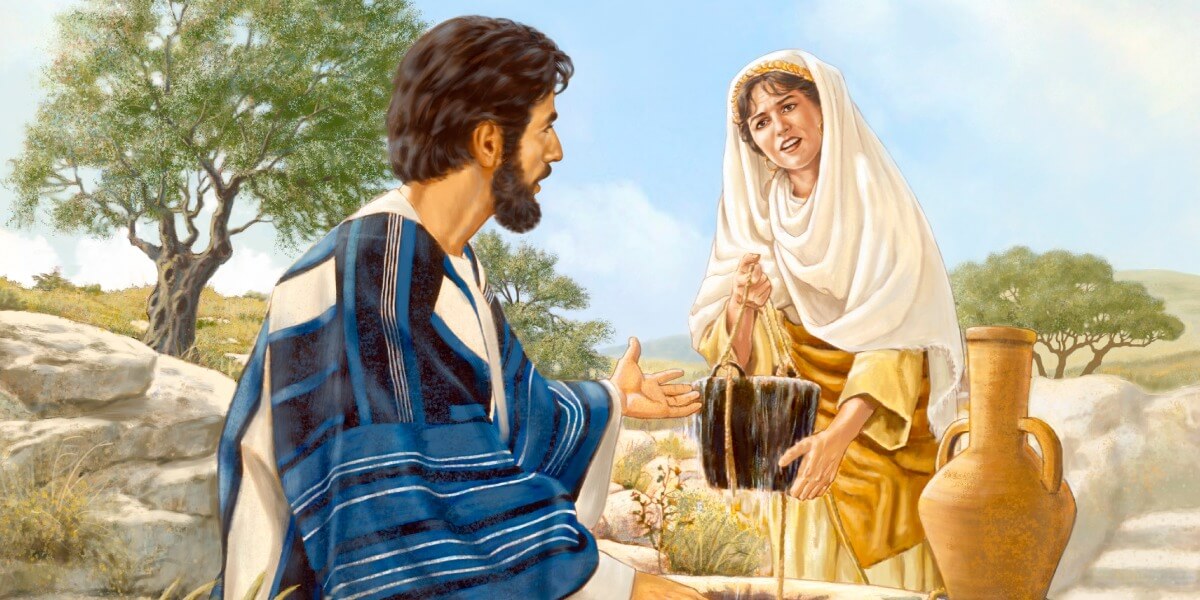|
|
When I was first a Christian, I gravitated towards reading only the New Testament because I wanted to learn more about Jesus (and it was way easier to understand). But now as I read through the Old Testament, I’m noticing amazing and important things about God, particularly in the prophet books. Because God never changes, we can read the stories of ancient prophets like Jeremiah, Amos, Jonah, and Ezra; and see God’s heart and character revealed. Also, the messages that they proclaimed to both Israel and to pagan nations thousands of years ago are messages that are very relevant to the church today.
Here are 10 amazing things that the Prophets (even the minor ones) reveal about God.
1. God loves us unconditionally.
“I have loved you with an everlasting love; I have drawn you with unfailing kindness. I will build you up again, and you, Virgin Israel, will be rebuilt,” Jeremiah 31:3-4.
During the days of this prophet, Jeremiah, Israel is living in captivity in Babylon. In this chapter of Jeremiah, God assures his people that He will bring them out of captivity and restore them, according to His covenant promise.
We do not have to earn God’s love through doing the right things; we accept His love as a gift for being his children. God’s love does not change no matter what we have done. Respond to God as He draws you with His unfailing kindness and grace.
2. Jesus is the son of God.
Jesus repeats the Psalm 118:22 as a reminder that His presence was predicted long ago: “‘The stone the builders rejected has become the cornerstone.”
Philip Nation lists out the role of Jesus in each of the prophet books in his article, “Jesus…in Every Book of the Bible.”
The Major Prophets reveal Jesus:
- Isaiah – Suffering Servant
- Jeremiah – The weeping Messiah
- Lamentations – He assumes God’s wrath for us
- Ezekiel – Son of Man
- Daniel – The stranger in the fire with us
The Major Prophets reveal Jesus:
- Hosea – Faithful husband even when we run away
- Joel – He is sending His Spirit to His people
- Amos – Delivers justice to the oppressed
- Obadiah – Judge of those who do evil
- Jonah – The greatest missionary
- Micah – He casts our sin into the sea of forgetfulness
- Nahum – Proclaims future world peace we cannot even imagine
- Habakkuk – Crushes injustice
- Zephaniah – The Warrior who saves
- Haggai – Restores our worship
- Zechariah – Prophesies a Messiah pierced for us
- Malachi – Sun of righteousness who brings healing
We can rely on the guarantee of God’s gospel message of Jesus Christ through the Prophets and all throughout Scripture. Check out that article on BibleStudyTools.com to read how the rest of the Bible’s 66 books reveal Jesus.
3. God uses ordinary people.
Amos was a shepherd, which was a far from glamorous career in those days. “The words of Amos, one of the shepherds from Tekoa,” Amos 1:1. God used both the highest in society (like Ezra the priest) to the lowest (like Amos the shepherd) to proclaim His love to people.
God can use us just as much as He used the prophets of old to deliver his message. It doesn’t matter what age, ethnic background or education level, God can use you to usher in the Kingdom of God. We only need to be obedient and believe. Like God called Jonah to tell Nineveh to repent and follow God, He calls his people today to tell the gospel’s good news to a sinful world.
4. God is both gracious and just.
Nahum is the prophet who proclaims God’s heart for both justice and mercy: “The Lord is a jealous and avenging God; the Lord takes vengeance and is filled with wrath…The Lord is good; a refuge in times of trouble,” Nahum 1:2;7. It’s easier to picture Jesus walking beside us as our friend rather than a holy God who tells us “the wages of sin is death.” Nahum reminds us that He is both just and merciful. God administers justice when warranted but prefers to extend grace because of His great love for us.
5. God has a plan and purpose for your life.
While many Jews are held captive in Babylon, God spoke to His prophet, Jeremiah, to comfort His people and remind them that He is still in control and still has a good plan for them.
“This is what the LORD says: ‘When seventy years are completed for Babylon, I will come to you and fulfill my good promise to bring you back to this place. For I know the plans I have for you,’ declares the LORD, ‘plans to prosper you and not to harm you, plans to give you hope and a future,’” Jeremiah 29: 10-11.
Even if the circumstances in your life look like a terrible mistake, like the Jews trapped in Babylon, God has a plan in the works. Take comfort that He is always in control and is working for your good.
6. God calls you to repentance.
Joel 2:13-14 says, “Rend your heart and not your garments. Return to the Lord your God, for he is gracious and compassionate, slow to anger and abounding in love, and he relents from sending calamity. Who knows? He may turn and relent and leave behind a blessing grain offerings and drink offerings for the Lord your God.”
It’s never too late to turn away from sin and run towards God. Simply saying sorry is a great first step, but turning away from sin and towards God is what He is looking for – He wants your heart. We can rest in the promise that God will keep His relationship with us.
7. We are responsible for our own faith and obedience, not others’.
“Therefore, you Israelite’s, I will judge each of you according to your own ways, declares the Sovereign Lord. Repent! Turn away from all your offenses; then sin will not be your downfall,” Ezekiel 18:30.
Although the prophets were tasked with delivering news of destruction, God always gave a way out. God called the prophets like Ezekiel and Jonah to obey Him by delivering the news. They were not responsible for how people received the message, only for their own obedience to God in sharing it. We can only deliver the message of God; we cannot make others believe it. However, it’s wonderful to take part in the joy of seeing other’s respond to the message and come to a saving faith in God.
8. Sin should cause us to weep.
Jeremiah is the perfect example of a prophet whose words were fulfilled right before his eyes. Despite his warnings, Jerusalem was destroyed because of the people’s reluctance to obey God: “Oh, that my head were a spring of water and my eyes a fountain of tears I would weep day and night for the slain of my people,” Jeremiah 9:1.
Jeremiah cared about the people of Israel enough to shed tears over their sin. When is the last time you cried over your sin, your nation’s sin, or your church’s sin? We are a body of believers. Although we are ultimately responsible for ourselves, we have a duty to walk alongside our brothers and sisters in Christ and help them develop into mature disciples.
9. God wants us to give Him our best.
The first verse of Malachi’s prophesy repeats God’s beautiful words to His people: “I have loved you.” What do the priests say in response, “how have you loved us?” Talk about ungrateful! God then confronts them in that love and calls the priests out on their sin of allowing the people to give their sacrifices that were less than stellar.
“‘A son honors his father, and a slave his master. If I am a father, where is the honor due me? If I am a master, where is the respect due me?’ says the Lord Almighty. ‘It is you priests who show contempt for my name. ‘But you ask, ‘How have we shown contempt for your name?’ ‘By offering defiled food on my altar. ‘But you ask, ‘How have we defiled you?’‘By saying that the Lord’s table is contemptible. When you offer blind animals for sacrifice, is that not wrong? When you sacrifice lame or diseased animals, is that not wrong? Try offering them to your governor! Would he be pleased with you? Would he accept you?’ says the Lord Almighty,” Malachi 1:6-8.
If we want to give God His due, we need to give Him the best of everything we have.
10. Silence perpetuates sin.
In the above passage from Malachi, God confronts the leaders with their sin of allowing blemished sacrifices to reach God’s altar. The priests sinned through their silence. By not rejecting the blemished offerings and requiring only the best offerings, they allowed sin to continue, creating a rift between themselves and God. Speaking the truth to someone is sometimes uncomfortable and difficult, but it is necessary for a Christian’s growth.
God uses the ordinary to do the extraordinary. Prophets may have been unwelcome in many towns, but it was the truth of the words that they spoke that was eventually proven to be from God. Comb through the books of the minor prophets to see what message God might have for you through their words.

















Leave a Reply